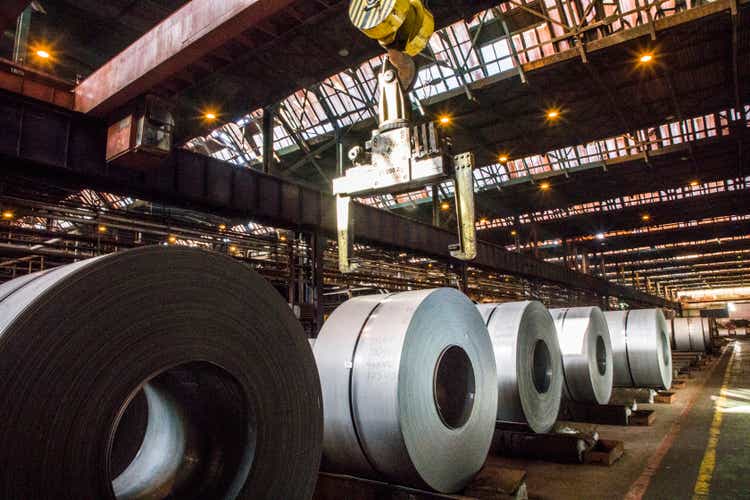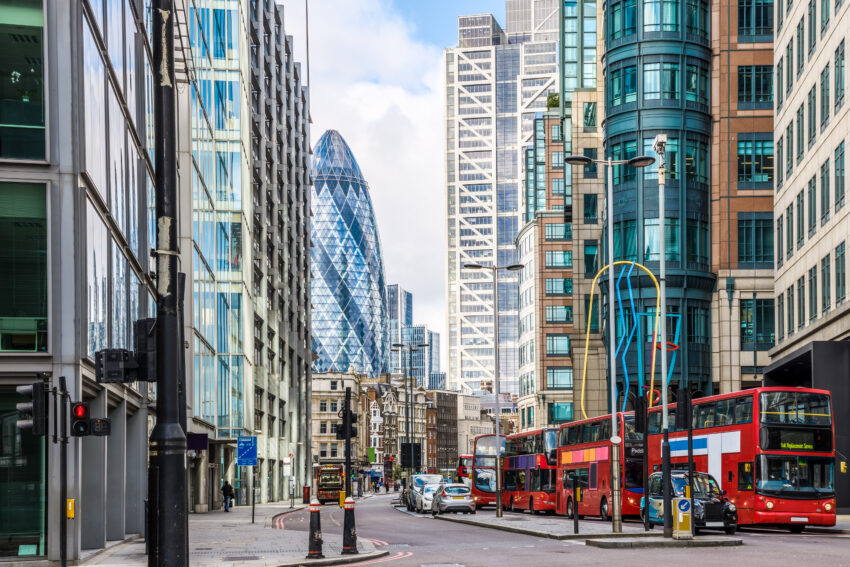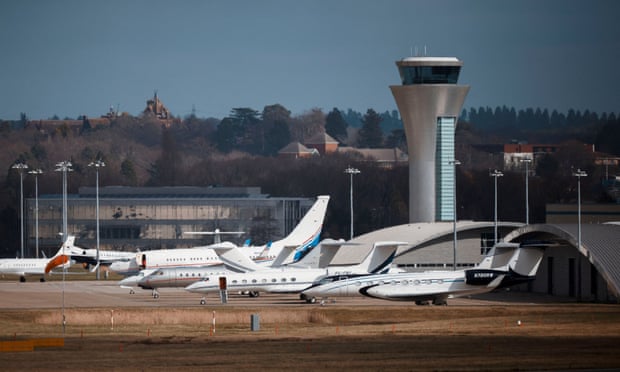[ad_1]
South Africa is but once more at a crossroads. This implies South Africans should make a significant determination relating to their future.
On the final crossroads in 1994, South Africans had hoped for a vivid future that democracy would result in. Giant numbers flocked to the polls and 62.65% of them voted for the African Nationwide Congress (ANC). Ten years later an excellent bigger quantity, 69.7%, voted for the ANC to convey concerning the promised land South Africans had fought for throughout 300 years of battle.
South Africans have now reached one other crossroads – caused by the failure of the ANC authorities that South Africans had positioned a lot religion in to ship on its promise of a greater life for all.
ANC authorities failure and the fee to South Africa
Twenty years in the past, South Africa was the biggest economic system in Africa by far. It had probably the most developed and diversified manufacturing sector; it had the biggest railway community on the continent and one of many largest on the earth; it was the biggest producer of electrical energy in Africa; it had the biggest port in Africa, Durban.
By 2019, a 12 months earlier than the Covid-19 virus struck, South Africa below ANC authorities had gone into steep decline. Misguided financial insurance policies led to employment collapse; for instance, within the footwear sector, the place employment fell from 27 882 in 1995 to a mere 12 035 in 2002. At this time, South Africa has the best unemployment price on the earth and never surprisingly 27% of kids below 5 are stunted on account of in depth malnutrition.
South Africa was overtaken by Nigeria in 2013 because the main economic system in Africa. It was later additionally overtaken by Egypt in 2020.
Its manufacturing sector had shrunk from 20% of gross home product (GDP) in 1994 to 13% of GDP in 2021; South Africa’s railway community was ravaged by mismanagement and lack of upkeep in order that a lot of the nation’s freight moved on highway; the state-owned electrical energy firm grew to become a byword for incompetence.
The Port of Durban and different South African ports, based on a 2021 examine by the World Financial institution, had been among the many least environment friendly ports in Africa and the world. South African ports had been ranked as follows: Ngqura 363, Durban 364 and Cape City 365 out of 370 ports worldwide. The very best ranked African port was Djibouti, which is ranked quantity 19.
The failure of the ANC authorities was not restricted to financial failures, it prolonged to the vital space of human safety. In 1990 South Africa had probably the most developed militaries. It may subject a well-trained and well-equipped military of half one million troopers. It had extremely developed navy industries that had grown however worldwide sanctions.
At this time the South African military has been described as a welfare company slightly than a warfare company.
Its military of 81 500 (66 500 energetic, 15 000 reserve) is ill-equipped, unhealthy, aged, and unfit. Most of its energetic service personnel are above the age of 40, and so are their preventing automobiles. The defence funds has collapsed from 2.6% of GDP in 1994 to 0.93% of GDP in 2019/2020.
The tools procured for the air drive and navy within the early 2000s is all however inoperative attributable to lack of spare elements and lack of certified personnel to keep up and function it, based on Lindy Heinecken, writer of South Africa’s Put up-Apartheid Army: Misplaced in Transition and Transformation. Lower than a 3rd of the 37 Oryx helicopters are operational; solely 5 of the 26 Gripen fighter jets are operational; and solely 5 Hawk trainers out of 24 are operational. Solely one of many 4 navy frigates is in service.
Anybody can stroll throughout South Africa’s borders and do virtually as they want as soon as contained in the nation. Overseas poachers kill a whole lot of rhinos yearly. Importers of heroin and different drug retailers have a free run of the nation.
When the orgy of looting, violence, and destruction of business property and infrastructure in July 2021 erupted within the provinces of Gauteng and KwaZulu-Natal, the ANC authorities was paralysed and didn’t know what to do.
It issued an order to the police in Durban and Pietermaritzburg to do nothing. The police and the military made cameo appearances at riot scenes.
In a interval of eight days when the 2 provinces had been engulfed in riots greater than 340 individuals had been killed within the mayhem, many trampled to demise in the course of the looting, others killed by vigilante teams and personal safety corporations, some burnt within the fires that destroyed malls and distribution centres. Based on insurance coverage firm Allianz International Company & Speciality, property value US$1.7 billion was destroyed.
The July 2021 riots that adopted the arrest of former president Jacob Zuma confirmed what many individuals had suspected for some time – that South Africa is dominated by a failed authorities that’s not able to offering safety to life and limb of residents, will not be able to defending the nation’s property, and has misplaced management of the nation’s borders.
Allianz estimates that social upheavals are right here to remain.
Within the more and more unstable world that South Africa can also be a part of, a failed authorities provides to the risks the nation faces.
“Incidents of social unrest are unlikely to abate any time quickly given the aftershocks of Covid-19, the cost-of-living disaster and the ideological shifts that proceed to divide societies around the globe,” writes Allianz. “Enterprise must be alert to any suspicious indicators and designate clear pathways for de-escalation and response which anticipate and avert the potential for personnel to be injured, and or, injury to enterprise and private property.”
This is superb recommendation, however enterprise by itself can not present the safety that’s the duty of presidency to supply. The message ought to subsequently be clear to the nation: a authorities that’s not able to offering safety to the nation have to be changed democratically by one that may.
Key indicators of ANC authorities failure are within the areas of safety, worldwide relations, and financial coverage. These three are a vital measure for presidency efficiency as a result of they can’t be outsourced.
We have now seen above how the federal government has failed to supply safety; it has fared no higher in worldwide relations.
ANC authorities’s floundering overseas coverage
In 1990 South Africa was an enormous in Africa. It had one of many largest armies on the continent, with a complicated industrial navy complicated. In 1994, after years of apartheid, it emerged as a reputable democracy with a frontrunner, Nelson Mandela, who after many many years of prosecution by the apartheid regime, was preaching reconciliation and nation constructing.
For a number of years, Africa and the world adored South Africa and regarded ahead to it changing into Africa’s lodestar. As now we have seen, since Mandela, South Africa has fretted away no matter strengths it had. At this time South Africa has been described as Africa’s misplaced chief.
Based on James Hamill, in his e-book Africa’s Misplaced Chief; South Africa’s Continental Function Since Apartheid, South Africa has failed to satisfy the circumstances of a frontrunner in Africa.
Hamill says the next had been the circumstances that South Africa wanted to satisfy to develop into a frontrunner in Africa: “The nation would have needed to view itself as a hegemon and be ready to claim a powerful declare to African management; purchase ample materials energy to make its hegemonic aspirations credible, in addition to the flexibility to translate that energy into concrete coverage outcomes; and persuade different African states to just accept its management as useful for your complete area.
“The nation would additionally must display robust ideational attraction throughout the area, permitting it to construct coalitions that promote core norms and values; and assist stabilise the continent by means of the supply of public items, significantly financial improvement, and mechanisms to keep up safety and order.”
Underneath the ANC authorities South Africa has failed miserably to satisfy any of the above circumstances of management.
It’s largely due to the strengths and class of the nation’s personal sector and academia that the world nonetheless invitations the South African authorities to take a seat in its excessive councils.
Why ANC financial insurance policies failed
Contradictions between African nationalism and enterprise
The principle contradiction within the South African political economic system is the battle between the backward-looking African nationalism of the ANC, which tries to proper previous wrongs by means of which it advantages, and the nation’s forward-looking personal enterprise which operates on the premise that funding made at present will yield revenue sooner or later.
African nationalists wish to be paid now by enterprise for ache suffered prior to now whereas enterprise needs to speculate its cash now so it may well make a revenue sooner or later.
On this conflict of the elephants, it’s the grass, in different phrases, the atypical folks that endure.
Nationalism is an ideology of the elite that’s pushed by a deep sense of grievance for being excluded by a politically dominant group or teams – in our case by British colonialists and later Afrikaner nationalists – from having fun with the political, social, and financial advantages in a given society. Previous to 1994 when the ANC gained management of state energy, the African nationalist elite was excluded from political energy, and it was additionally excluded from proudly owning property. To battle towards these exclusions the African nationalist elite mobilised different aggrieved social teams right into a social and political motion to battle for inclusion.
African nationalist elite comprised African, colored and Indian professionals, merchants, intelligentsia, and leaders of faith-based organisations. The African nationalist elite mobilised the mass of the city and rural working class, peasants, youth, and college students to affix it within the battle towards exclusion from having fun with the fruits created primarily by British colonialism within the 19th and early 20th Centuries.
It’s typically forgotten that the South African economic system was not created by Afrikaner or African nationalists. The South African economic system – whose spine stays the exploitation of the nation’s huge mineral assets by means of low-cost, largely migrant, black labour – was created by the British over the last quarter of the 19th Century once they established the nation’s huge mining business.
For the reason that British relinquished political management of South Africa in 1910, South African governance has been dominated by nationalism – first Afrikaner nationalism, which dominated between 1910 and 1994, and now by African nationalism which has dominated South Africa since 1994.
African nationalist agenda
High of the listing for African nationalism in 1994 was the democratisation of the political system.
Democratisation of the nation’s political system was used to remove all types of racial discrimination towards Africans, coloureds and Indians. Democratisation opened entry to employment alternatives for all races within the public sector. It compelled the state to supply schooling, healthcare and different social companies that had disproportionately been provided to whites solely.
The state was additionally used to handle the pent-up consumption calls for of the African elite and its allies that had been suppressed for greater than a century for the reason that inception of the mining business.
For the reason that African elite had been excluded from property possession for hundreds of years, safety of property rights was very low on its listing of priorities.
The African elite was not against capitalism, some extent Nelson Mandela made repeatedly. He mentioned it was solely against the exclusion of Africans, coloureds, and Indians from changing into capitalists.
One other level Mandela pressured was that nationalisation as envisaged within the Freedom Constitution was not meant to create a socialist economic system however to realize the alternative. He mentioned its intention was to open the economic system to all South Africans by breaking apart the stranglehold over financial alternatives by white-controlled cartels and oligopolies.
Additionally low on the listing of priorities of the African nationalist elite was the profitability of the nation’s companies.
Democratisation thus created completely different challenges within the relationship between enterprise and African nationalism. There had been conflicts been enterprise and Afrikaner nationalism, however these weren’t as threatening since Afrikaner nationalist elite had been property house owners and subsequently had widespread pursuits with enterprise. Variations between enterprise and African nationalism had been extra threatening to enterprise as a result of enterprise felt politically marginalised. Democracy concentrated political energy within the fingers of the black majority that enterprise itself had been occasion to exploiting.
Democracy in South Africa, removed from making a enterprise setting of certainty and stability, left enterprise feeling uncovered to potential asset seizure and onerous taxes by the omnipotent however propertyless African nationalist elite that dominated virtually with no credible opposition.
Earlier than lengthy, the fears of enterprise had been confirmed by rising corruption among the many African governing elite and gross mismanagement, particularly at native authorities stage and of state-owned enterprises that supplied electrical energy, and mismanagement of state-controlled rail and air transport in addition to different social and financial infrastructure wanted by enterprise to function, corresponding to broadband, public broadcasting and the publish workplace.
Democracy additionally got here at different direct prices to enterprise. The brand new African nationalist rulers used the state to fulfill pent-up black consumption by augmenting the scale of public sector employment in addition to its remuneration.
The dimensions of the general public service thus ballooned, its remuneration rising exponentially, overtaking personal sector remuneration in lots of classes.
Based on the Organisation for Financial Co-operation and Improvement (OECD), a Paris-based assume tank of developed international locations, compensation for normal authorities workers in South Africa, at greater than 14% of GDP in 2015, was the best on the earth. Different international locations at related stage of improvement as South Africa paid their public worker 5-7% of GDP.
Compensation of normal authorities workers, 2015

Supply: IMF, Authorities Finance Statistics
This large consumption-driven expenditure was made potential by the brand new African nationalist elite utilizing its political energy to tax enterprise and the managerial {and professional} lessons and by rising public debt in addition to the creation of credit score.
Huge assets had been subsequently transferred from manufacturing in the actual economic system to consumption by households and by the state, resulting in a fantastic enhance of family consumption as a proportion of GDP. This reallocation of assets to consumption resulted in stagnation of gross mounted capital formation within the economic system, which was at standstill for the reason that late Nineteen Seventies. This hobbled the expansion of the economic system, leading to amongst different issues ageing capital tools throughout the economic system.
There have been nonetheless a couple of years when there was important financial development, for instance from 2004 to 2008, however a lot of this was pushed extra by a rise in commodity costs than by renewed confidence in South Africa.
The political adjustments of the final 28 years have total impacted negatively on the economic system resulting in stagnation and deindustrialisation. The unwanted effects of this are many – we don’t want to enter them right here. It’s ample to say that among the many many penalties are capital flight, the emigration of expert individuals, and ranges of crime particularly homicide that approximate these of nations at battle.
Nationalism and South Africa’s financial improvement
South Africa is probably the most unequal nation on the earth. It has a few of the highest unemployment charges on the earth. That is the legacy of 110 years of African and Afrikaner elite rule. Why ought to the regime of inequality and unemployment change if African nationalist rule continues for a lot of extra years?
The next diagram reveals us the construction of the stunted society nationalism in-built South Africa.
There’s nothing prefer it wherever else on the earth.
Social construction of South Africa, 2014

Supply: Statistics SA
The elite is made up of individuals in the private and non-private sectors who earn greater than R60 000 a month and quantity 105 000; the center class earn between R11 500 and 60 000 a month and quantity 2 310 000; blue collar employees earn lower than R11 500 and quantity 9 005 000; underclass and unemployed earn undetermined quantity and quantity 11 756 000; unbiased skilled and NGOs quantity 432 000.
The usage of the state by South Africa’s two elites over the last hundred or so years achieved one essential final result: it constrained the flexibility of the economic system to develop to its full potential.
The insatiable demand for reasonable black labour by the Afrikaner elite and their allies and companions within the mining sector – whereas enabling a certain quantity of financial improvement to happen particularly in agriculture, mining, city and rural infrastructure – hobbled the broader and deeper improvement of South Africa by constraining the event of the nation’s human capital. Job reservation and lots of misguided schooling insurance policies condemned South Africa to comparatively decrease talent ranges of improvement corresponding to extractive industries, meeting, building, public sector administration, and commerce.
On account of its human capital improvement inhibiting insurance policies, the South African economic system lacks the complexity of the newer economies of the Asian Tigers.
South Africa has subsequently come to more and more rely on the Asian Tigers for capital items, telecommunication tools, computer systems, transport tools, client electronics, white items, and lots of different manufactured merchandise.
It’s subsequently no accident that South Africa in its relationship with South Korea, a current newcomer to industrialisation, is an importer and client of Korea’s refined manufactured merchandise whereas South Africa provides Korea with unprocessed or semi-refined mineral merchandise.
The African elite freed the labour market and facilitated negotiations between administration and labour within the regular operations of companies, nonetheless it continued to hobble the financial improvement of the nation by diverting a lot of the financial surplus by means of the tax system, from funding to consumption, particularly consumption by the African elite and center class, in an try to equalise their consumption to that of the white center class and higher center class.
The state’s public schooling insurance policies below the rule of the African elite continued to undermine the event of the nation’s human capital by experiments corresponding to outcome-based schooling and the decreasing and manipulation of cross charges.
Most significantly, the African elite disincentivises entrepreneurship amongst blacks with insurance policies of black financial empowerment and affirmative motion. Not surprisingly there are hardly any new important corporations being created in South Africa.
South Africa at present has rightly been described (by the late economist and author Professor Sampie Terreblanche) as an enclave economic system that primarily companies the consumption wants of its comparatively small black and white center class and higher class whereas a big a part of the inhabitants is locked into unemployment, underemployment, poverty, and underdevelopment in rural and concrete areas attributable to low funding ranges within the economic system as a share of GDP.
There’s subsequently no purpose to presume that the ANC authorities would do issues in another way if it continued to rule for one more 28 years and even for 50 years.
Comparability of GDP, South Korea and South Africa (US$bn)

Supply: Kerry Baldwin, Letsema Consulting
South Africa’s high exports to South Korea are ores, slag and ash; iron and metal; pearls, treasured stones, metals and cash; and mineral fuels, oils and distillation merchandise.
High imports into South Africa from South Korea are equipment, nuclear reactors, boilers; automobiles aside from railway and tramway; electrical and digital tools; and plastics.
A brand new constitution for consolidated democracy and financial improvement
For South Africa to interrupt out of this nationalist paradigm and industrialise and modernise its society numerous issues should occur:
- Electoral reforms to introduce combined constituency and proportional illustration at nationwide and provisional ranges.
- Its schooling, well being care, transport and electrical energy provide methods have to be overhauled and redesigned.
- Its public companies, together with conventional leaders’ sector, have to be reconfigured to serve the individuals.
- Its financial relations with its Southern African Improvement Group (SADC) and Widespread Marketplace for Japanese and Southern Africa (Comesa) neighbours have to be renegotiated and restructured.
- Its commerce and funding relations with non-African companions should even be renegotiated.
- The economic system have to be restructured to be extra funding pushed slightly than consumption and finance pushed, and black financial empowerment’s calls for on overseas buyers ought to be phased out.
- Enterprise improvement plan to develop employment and part out export of mineral ores.
- Introduce nationwide service for 18-year-olds of each sexes.

Moeletsi Mbeki is deputy chair of the South African Institute of Worldwide affairs, an unbiased assume tank primarily based at Wits College in Johannesburg.
[ad_2]
Source link









